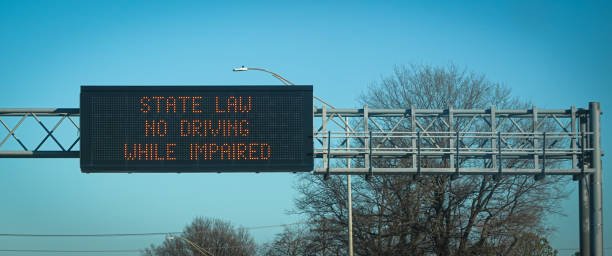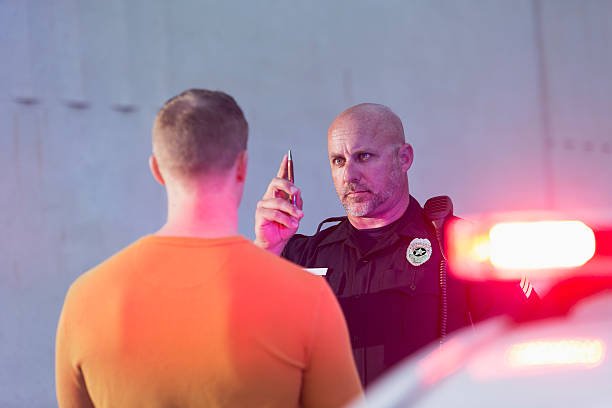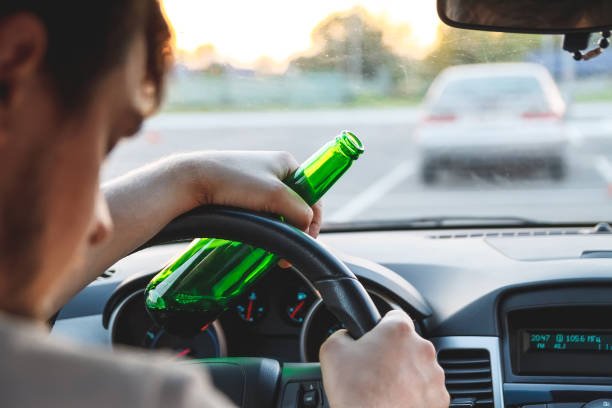In the realm of traffic offences, the term “wet reckless” might not be as straightforward as other more commonly understood violations like DUI (Driving Under the Influence) or DWI (Driving While Intoxicated). “Wet reckless” is a legal term used to describe a plea bargain in which a person charged with a DWI pleads to a lesser charge of reckless driving involving alcohol. This article will explore what wet reckless driving entails in Texas, the implications of such a charge, and how it differs from other related driving offences.
Understanding Wet Reckless Driving
What is a wet reckless charge?
Definition and Legal Context
In Texas, wet reckless driving is not a charge directly issued by police at the time of an offence. Instead, it results from plea negotiations between the defendant’s attorney and the prosecutor. This means you’re pleading guilty to reckless driving, and by pleading guilty, you are admitting to the charges, which allows the prosecutor to avoid taking your case to trial. In return for your guilty plea, you can avoid having a DUI sentence on your permanent record, potentially providing significant relief in your legal situation.
Also, in scenarios where the evidence of driving while intoxicated is borderline illegal or if there is a probable cause issue with the DWI arrest, the charge might be reduced to reckless driving involving alcohol, colloquially known as wet reckless. Wet reckless is a lesser charge than DWI and carries significantly fewer penalties.
Key Characteristics
The “wet” in wet reckless refers to alcohol involvement. While this charge is less severe than a DWI, it still indicates that the reckless driving was alcohol-related. Not all states recognize wet reckless as a charge, and its acceptance can vary widely based on local laws and the specifics of individual cases.
Implications of a Wet Reckless Plea

Legal Consequences
In Texas, driving while intoxicated (DWI) is a serious offence that carries severe consequences. The state’s laws dictate strict penalties based on the number of previous offences and the driver’s blood alcohol concentration (BAC). If you are facing a DWI charge, your future is in jeopardy. You may face significant fines, the loss of your driver’s license, and even imprisonment.
The penalties for a wet recklessness are generally less serious than those for a DWI. These include lower fines, shorter jail time, and a reduced impact on driving records. However, it’s crucial to understand that a wet, reckless plea still reflects an alcohol-related offence and can have implications for future legal situations, such as child custody disputes, employment background checks, immigration proceedings, or even auto insurance rates.
Impact on Driving Record
A wet reckless driving charge in Texas will go on your driving record. However, it typically carries fewer points than a DWI conviction and might result in less significant insurance premium increases. Despite these relative leniencies, any alcohol-related driving offence can lead to more severe penalties for subsequent offences, such as longer license suspensions, higher fines, or even imprisonment.
Comparing Wet Reckless to DWI and DUI
How is wet reckless better than DUI/DWI?
Severity and Penalties
While a DWI typically involves clear evidence of impairment or a BAC (Blood Alcohol Content) at or above the legal limit of 0.08%, a wet reckless charge may be considered when the evidence is less conclusive. A wet reckless charge does not carry the same weight as a DWI but is still more serious than a non-alcohol-related reckless driving offence.
Legal Strategy
Opting for a wet reckless plea can be a strategic move to avoid the harsher penalties associated with DWI charges. It is often used as a compromise when the prosecution does not wish to dismiss an alcohol-related driving charge but recognizes that proving DWI might be challenging under the circumstances.
How to Get DUI Reduced to Wet Reckless
Not everyone accused of drunk driving is eligible for a wet and reckless charge. The availability of this option depends on the unique circumstances of your case. You are more likely to be able to plead down to a wet and reckless charge if you are a first-time DUI offender, do not have a history of other crimes or traffic offences, have a relatively low blood alcohol content (BAC), and did not cause any property damage. A DUI lawyer can help you negotiate to plea bargain your charges down to wet and reckless if you and your attorney believe it is the best option for you.
Advantages and Disadvantages of Pleading Guilty to a Wet and Reckless Charge

By pleading guilty to a wet and reckless charge, you may avoid some more severe penalties associated with a DUI conviction. Specifically, you may be able to:
- Ditch a license suspension or have your license suspended for a shorter period.
- Avoid prosecution for drunk driving and avoid a DUI on your criminal record
- Avoid the required installation of an ignition interlock device in your vehicle
- Receive less serious penalties, including lower fines and shorter potential jail time or probation time
Remember that the specific benefits of a wet and reckless charge will depend on the facts of your case and the prosecutor’s discretion.
While a wet and reckless charge may offer some advantages, there are also some significant drawbacks. Specifically, you should be aware that:
- You will be required to admit guilt and will not have the opportunity to contest the charges in court
- You will be left with a criminal record for reckless driving, which can have long-term consequences for your personal and professional life, such as difficulty in finding employment, higher insurance rates, or limitations on certain professional licenses.
- The wet and reckless charge could be counted as a prior DUI offence if you are charged with a second DUI offence in the future, potentially leading to more severe penalties.
- You may still face significant fines, jail time, license suspension, and drug and alcohol counselling, which can be a considerable burden.
Conclusion
Wet reckless driving is a nuanced aspect of Texas traffic law, serving as a middle ground between DWI and standard reckless driving charges. It offers a potential reduction in penalties while acknowledging the involvement of alcohol in reckless driving behaviour. Understanding the possibility and implications of a wet reckless plea is crucial for those facing DWI charges. As always, consulting with a knowledgeable attorney who can navigate and analyze the complexities of traffic law and negotiate effectively is essential for anyone involved in such legal matters.
Frequently Asked Questions
Does a wet reckless suspend your license?
No, a wet reckless conviction in Texas does not automatically suspend your driver’s license. However, there are some caveats:
- The Department of Motor Vehicles (DMV) Suspension: Even if you plead to a wet reckless, the DMV may still suspend your license if you gather too many points on your driving record or if you lose a DMV Administrative Per Se (APS) case
- Administrative Per Se (APS) Case: Assuming you lost the DMV APS case, your license and other penalties associated with a wet reckless conviction shall be suspended.
- Points on Your License: A wet reckless conviction will trigger the DMV to add two points to your driver’s license. Too many points lead to license suspension.
- Informal Probation: If you plead guilty to a wet reckless, you will face informal three-year probation. This probation includes conditions such as obeying all laws, having a 0.00% BAC while driving, and consenting to field sobriety tests if you are pulled over on suspicion of DUI.
- DMV Hearing: It is crucial to request a hearing within ten days of your DUI arrest to avoid automatic license suspension.
In summary, while a wet reckless conviction does not suspend your license, the DMV can still suspend your license under certain circumstances.
